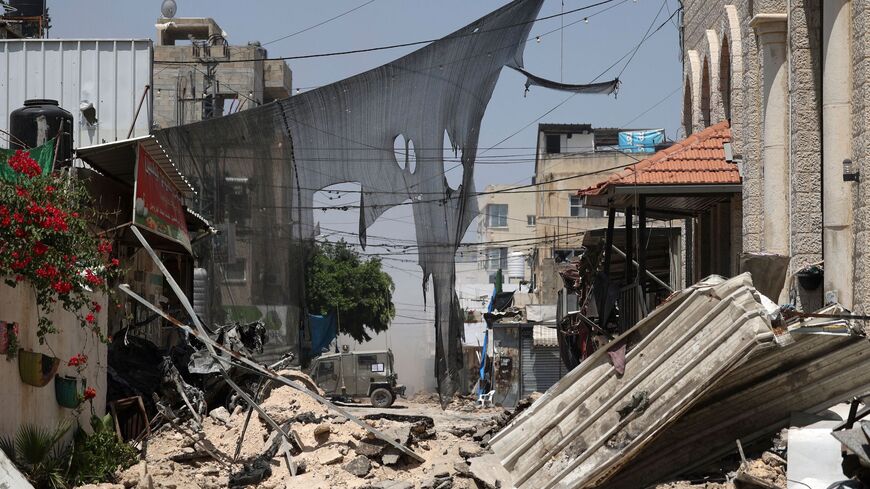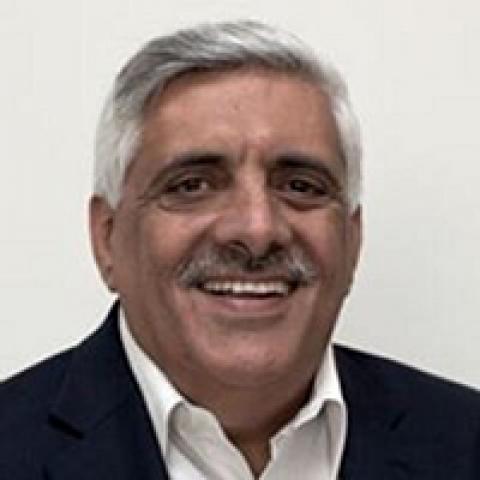In the early hours of Monday, Israel began a raid on Jenin that has killed at least 10 Palestinians thus far.
The last time Israeli troops raided Jenin — on June 19 of this year — one of their military vehicles was immobilized in an ambush, with the resulting firefight leaving Israel with a number of injured soldiers as it took some time to remove the vehicle. That attack left five Palestinians killed, including two children. In retaliation for those killed, two armed Palestinians (who were not from Jenin) carried out an attack a day later at a gas station for Israeli settlers, killing four. In response, Israeli settlers attacked the town of Turms Aya, killing one Palestinian (the husband of an American citizen) and leaving destruction in the form of torched cars, homes and other property. An Illinois state representative was among those trapped in the village when hundreds of armed settlers (with protection from Israeli forces) targeted the town he was born in, after he had come for a summer visit.
To get Palestine Briefing in your inbox every week, subscribe here.
Some Israeli settlers, among them senior members of the Israeli government, called publicly for a major long-term military offensive against Jenin, demanding the death of dozens, hundreds and even thousands of Palestinians. Those making calls against Jenin didn’t seem to acknowledge the fact that the perpetrators of the gas station attack were not from, nor had they come from, Jenin.
Those who pay attention to these public demands and pronouncements know that when settlers’ leaders make such demands, they are usually carried out by the Israeli army.
The multi-day attack on Jenin that started in the early hours of Monday and left at least ten Palestinians killed and dozens injured was preceded by a visit from a huge D9 bulldozer that literally erased buildings, widened alleyways, and took with it anything that stood in its way. Israel said it did this to ensure that there were no explosives planted in the way of the Israeli army’s efforts to target the Jenin Youth Club, which the Israelis insist is a meeting place for the commanders of the Palestinian resistance units.
Palestinian President Mahmoud Abbas called the raid yet another war crime and officials in the presidency are saying that they are now cutting off any communications with the Israeli occupiers.
It is not clear if this statement will hold for long, or if there is anything that the Palestinian government with its current policy can do. President Abbas has always insisted that he is opposed to the use of any violent resistance, while not doing much regarding the popular nonviolent resistance he has given lip service to. Israeli Prime Minister Benjamin Netanyahu reportedly told a closed-door meeting of the Israeli defense and foreign relations committee that he is totally against a Palestinian state, yet believes Israel needs to keep the Palestinian Authority alive.
No one expects that at this rate the Palestinian government will be able to have any effect on the future. Former Palestinian Foreign Minister Nasser Kidwa believes that a totally new approach and leadership is needed, and he told me in recent days that he is planning to announce a sort of transitional committee made of 70 persons that will be given a year to come up with a cohesive plan for the future. Kidwa told me that while he and friends have produced four scenarios (from radical to moderate) for the days ahead, he conceded that in the short term an understanding is needed with what he called “parties that are not friendly to Palestinians.” The understanding will include a mutually agreed-upon freeze: Israel will freeze settlements and in return Palestinians will freeze armed resistance.
The Kidwa plan reflects a realistic approach that knows that it will be too costly to continue the David vs. Goliath battle this time. The Palestinian “David” is fighting against a huge and powerful military that is supported by its own people (including those totally opposed to Netanyahu), and is generally backed by the US and the international community.
Verbal opposition from Palestinians, including vows to not “talk to the occupiers,” will do little to change the existing reality in the occupied territories. It is clear that while there is some romanticized support for armed resistance, few believe that it will have any positive effect or will change the paradigm.
Palestinians need new thinking, new direction, and an agreed-upon strategy for ending the decades-long occupation and colonial settlement enterprise. That requires at a minimum a unity of purpose and leadership. This is sorely missing and that is why many believe the time is ripe for new thinking in the Palestinian arena. New thinking by people who are willing to take a stand and follow up with the effort that is needed to produce a unified Palestinian strategy.








